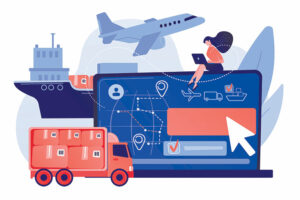Digitalization has become a crucial component in several actions toward nation-building. Even in custom operations, digital processes have been further adopted to enable a more efficient and even secure facilitation of trade across the globe.
The Philippines’ Bureau of Customs (BoC), under the Department of Finance (DoF), has been actively working to modernize custom operations in the country. This drive for innovation has positioned them as a pivotal partner for nation-building and economic prosperity.
Digitalization is at the cornerstone of the agency’s modernization journey, leveraging advanced information and communication technologies (ICT) to achieve a more efficient and effective custom operations.
“Through advanced data analytics, machine learning algorithms, and cutting-edge technologies, we will streamline our processes, improve risk assessment capabilities, and enhance fraud detection mechanisms. By leveraging AI-driven solutions, we can identify potential risks more effectively and respond to emerging threats with agility and foresight,” Ronnel B. Hombre, director of BoC’s Planning Systems and Development Service, was quoted as saying during the 32nd National Convention of the Chamber Customs and Brokers, Inc. (CCBI) last year.
“The Bureau remains steadfast in its commitment to innovation, transparency, and collaboration as we strive to enhance trade facilitation and create a world-class customs administration for the Philippines. Through ongoing modernization efforts and strong partnerships with stakeholders, the Bureau is poised to achieve even greater efficiency, security, and competitiveness in the global trade arena,” Marlon Fritz B. Broto, acting deputy commissioner for BoC’s Management Information Systems and Technology Group (MISTG), said in another statement.
As modernization changes the game for customs operations in the Philippines, the agency continues to dedicate itself in adopting digital-driven innovations and build partnerships that will strengthen its capabilities and create a strong and adaptive custom system for the Philippines.
Automated Export Declaration System
One means BoC is employing to simplify export processes and documentation is the Automated Export Declaration System (AEDS). This digital system allows exporters to easily submit documentations online and file them electronically through licensed service providers at international airports or seaports.
By using this system, the export process gets a major upgrade — from dealing with time-consuming paperwork to electronic submissions, essentially enabling the export process faster and more efficient. On top of that, AEDS also plays a significant role in expediting trade facilitation and reducing red tape activities.
Custom Auction Monitoring System
Meanwhile, the Custom Auction Monitoring (e-Auction) System enables users across all ports to manage their online registration and bidding activities digitally. Beyond simple convenience, this web-based platform significantly boosts transparency in custom auctions.
For custom agencies, a custom auction is designed to sell off goods and items that were seized, abandoned, or forfeited due to customs violations. Thus, this digital system helps the government to clear out prohibited or unclaimed items and earn revenue while still adhering to the custom regulations.
The e-Auction system promotes not only convenience to the auction process but also transparency and accountability, ensuring that the disposal of seized items or goods was handled fairly and efficiently.
Electronic Payment Portal System
Another notable development is the Electronic Payment Portal (E-Pay) System. This application allows for BoC’s online payments via authorized digital payment wallets and platforms. E-Pay covers payment collection processes and managing financial transactions and taxes.
Alongside this, the bureau has recently partnered with Maya Philippines, Inc. (Maya) to provide a payment gateway platform for BoC’s operations. This partnership allows the agency to manage bill payments, access Maya’s portable point-of-sale terminals and Smart Padala centers, and facilitate online checkouts, among others.
The E-pay System is in line with the agency’s efforts to provide a more convenient and secure payment option for its operations.
According to the BoC, technology and partnerships enables them to “advance to a more efficient, transparent, and service-oriented custom administration, demonstrating its commitment to innovation and strategic partnerships that serve the public.”
Digitalized Official Receipt System
The Digitalized Official Receipt System is a platform that tracks official receipts digitally. It helps improve the accuracy of financial records, lowers the risks of losing or damaging official receipts, and provides easy access to financial data and information.
This initiative is designed to make BoC’s financial processes smoother, while increasing transparency, accessibility, and modernizing custom operations.
In addition, this initiative is a collaborative effort with the APO Production Unit, Inc. — a key step towards paperless transactions and streamlining financial record management.
National Customs Intelligence System
Moving the digital leap further forward, the National Customs Intelligence System (NCIS) is another digital tool set to enhance intelligence efforts in the country’s customs operations. It centralizes and analyzes data, which helps the agency to strengthen its intelligence capabilities, develop smarter risks profiles, and perform in-depth analysis to combat smuggling.
Moreover, NCIS is a data-driven innovation that provides actionable insights to improve custom operations, allowing for better border protection, smuggling prevention, and legitimate international trade. This system is expected to strengthen BoC’s significant role in protecting national revenue, security, and economic interests.
NICS is an initiative by the agency’s Intelligence Group and Management Information Systems and Technology Group.
E-Travel Customs System
The e-Travel Customs System is a digital platform that streamlines passenger experiences for crews and passengers. It simplifies the baggage declaration process, letting passengers and crews skip the long lines at customs. The e-Travel Customs System collects their personal information, including the items they bring in and out of the country, enabling more convenient custom processes at airport terminals.
With this platform, custom officers can access passenger information in advance, making custom processes more efficient. It is also convenient for health monitoring, making it easier to track health risks. Overall, the e-Travel Customs System is a user-friendly platform, which helps customs in facilitating travel and trade activities, as well as enhancing border security.
Moreover, this platform is a collaborative effort between the following government agencies: the Bureau of Immigration (BI), Bangko Sentral ng Pilipinas (BSP), Anti-Money Laundering Council (AMLC), and the Department of Information and Communications Technology (DICT). — Angela Kiara S. Brillantes

